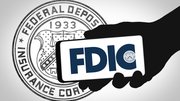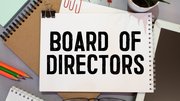News
Redbox experiment over; kiosk/ATM combo didn't catch on with McD's customers
November 12, 2003
WASHINGTON - A test of a concept that a McDonald's executive said would "do for the convenience store industry what ATMs did for the banking industry" is over.
McDonald's has pulled the plug on the Redbox, 24-hour kiosks that dispensed a variety of convenience foods and groceries, including milk, eggs, bread, detergent, shaving cream, paper towels, bandages and sandwiches. They took credit cards and cash and featured an ATM with a 25-cent surcharge.
Mark McGuire, a member of McDonald's business development team, was quoted with the optimistic prediction about Redbox's potential in a National Association of Convenience Stores newsletter last February, according to an Associated Press report.
A tarp covered the minivan-size machine in Washington, D.C., on Nov. 12, and a sign thanked customers for their business. However, a DVD rental service remained active, charging $2.97 for a three-night rental.
McDonald's closed four such machines in the metro area, most of which were outside McDonald's restaurants.
Local residents said the ATM occasionally ran out of money. They also said that while the DVD rentals did a brisk business, it was rare to see anyone buying the other items.
A company spokeswoman acknowledged that the experiment hadn't succeeded, according to the AP.
'McDonald's is focused on bringing more customers into our 30,000 existing restaurants all around the world,' said McDonald's spokeswoman Lisa Howard. 'Unfortunately, the Redbox automated convenience store didn't fit into that long-term growth strategy.'
The machines will eventually be removed from Washington's Adams Morgan neighborhood, Baltimore-Washington International Airport and two locations in Washington's Maryland suburbs. However, DVD rentals will continue.
'That initiative does have the potential to add more customer visits to our restaurants,' Howard said. She declined to discuss financial performance of the Redbox machines.
McDonald's operated its machines only in the Washington area. The company first tested the product in January 2002 at its restaurant next to Howard University.
In May, the Washington Metropolitan Area Transit Authority considered a pilot project with McDonald's to install the machines at certain subway stations. But transit officials nixed the idea. Metro Board Chairman Jim Graham was concerned about selling food in the transit system, which has a strict policy against eating on its trains and buses.
 ChatGPT
ChatGPT Grok
Grok Perplexity
Perplexity Claude
Claude












